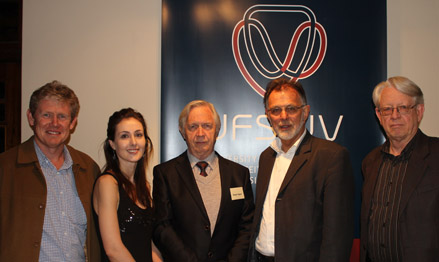Latest News Archive
Please select Category, Year, and then Month to display items
![]()
The University of the Free State (UFS) has an enrolment plan for 2007–2019 that was approved by the Department of Higher Education and Training (DHET). The university is compelled to adhere to these enrolment targets, as over-enrolment poses a risk to the academic integrity, financial sustainability, and student success of the university.
The UFS received 47 000 applications for admission in 2018, of which 17 000 applicants received final admission. All admission letters clearly stipulate that admission is subject to availability of space during registration. The enrolment target for new first-time entering students for 2018 is 8 000, therefore only 8 000 students can be registered across the university’s three campuses during this intake period.
The Executive Management of the UFS welcomes the fact that President Jacob Zuma’s announcement on 16 December 2017 about free education for the poor and working class has allowed many more students the opportunity to register. Several meetings between the Executive Management and the Student Representative Council (SRC) have taken place since the beginning of 2018 to discuss the implications of the President’s announcement. Engagement with the SRC regarding the registration process is also continuously taking place.
Online registration for all students opened on 8 January 2018. The UFS has put several measures in place to assist new first-time entering undergraduate students. Furthermore, students who have moved into residences and participated in the university’s Gateway Programme, as well as students who arrived on campus, were assisted to register for programmes with available space. In cases where the first option of study was full, students were redirected to other programmes with available space within the specific faculty or other faculties, provided that they comply with the relevant admission criteria. Only mainstream programmes in the Faculty of Economic and Management Sciences now have space left. The rest of the undergraduate programmes in all faculties on all the campuses are full.
Students who could not be accommodated in any of the programmes due to limited space are being directed to the Central Application Clearing House (CACH).
Supplementum analyses the San origin of South African place names
2013-09-25
|
 |
|
At the launch were, from the left: Prof Lucius Botes (Dean: Faculty of the Humanities), Christine van Deventer (SUN MeDIA), Prof Peter Raper (author), Prof Theodorus du Plessis (Head of Department: Linguistics and Language Practice), and Prof Dirk van den Berg (outgoing editor).
Photo: Jerry Mokoroane
25 September 2013 |
The Acta Academica Supplementum 2012 (2), under the outgoing editorship of Prof Dirk van den Berg, was launched on 16 September 2013. The author, Prof Peter Raper, is one of the leading place-name experts in South Africa. The Supplementum analyses the San origin of South African place names whereby different layers of language contact are exposed. For example, Dipodi (previously Jakkalsdraai), is an adaptation of the original San name. The first ‘di’ is the added Sotho preposition. ‘Po’ is equal to the San word ‘po’ (jackal) and the last ‘di’ equal to ‘/gi’ (to bend). Prof Raper’s research indicates that many place names carry evidence of various language shifts. By analysing these language layers, different phases of language contact are exposed. This research is instrumental in the preservation of a unique aspect of the South African cultural heritage.
Prof Raper is since 2011 Honorary Professor: Linguistics, in the Department of Language Management and Language Practice at the University of the Free State. He is one of South Africa’s leading toponymists. The fourth edition of the New Dictionary of Southern African Place Names, with Dr Lucie Möller and Prof Theodorus du Plessis as co-editors, is currently in the press. He is a member of the Commission for Toponymy of the International Geographical Union, as well as the Working Group for Toponymy of the International Cartographic Association, of which there are only ten members worldwide, and a member of the Editorial Advisory Board for the journal Names.